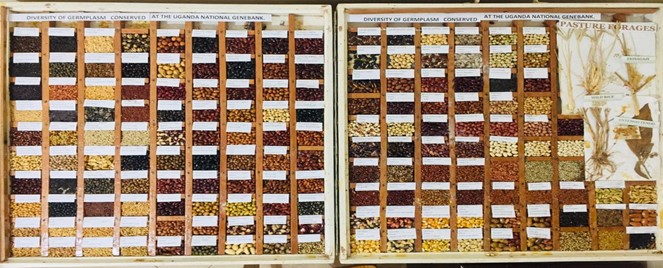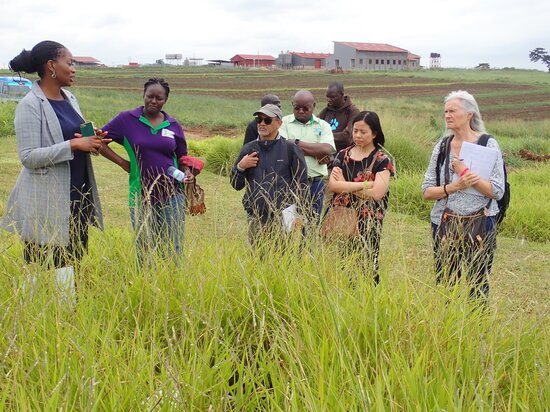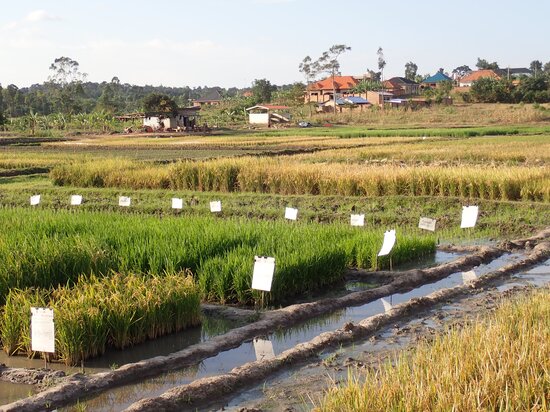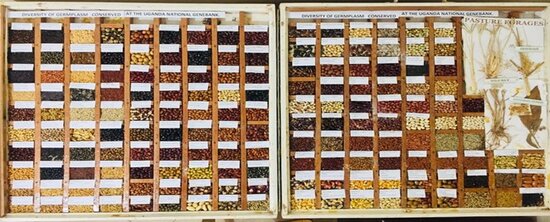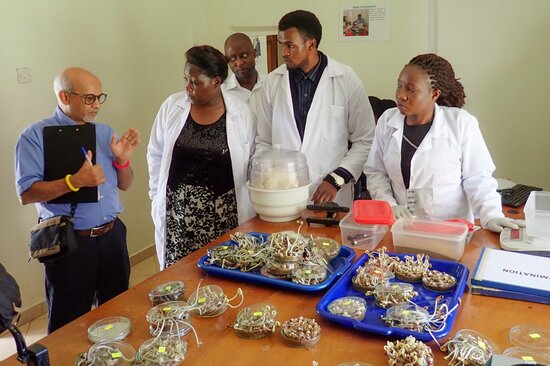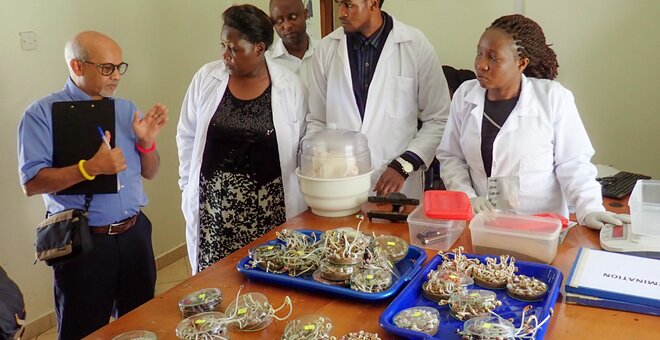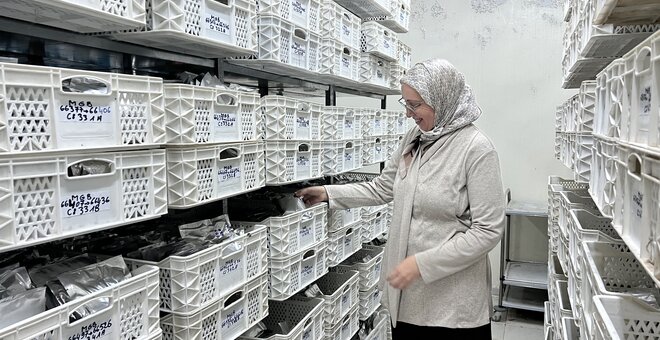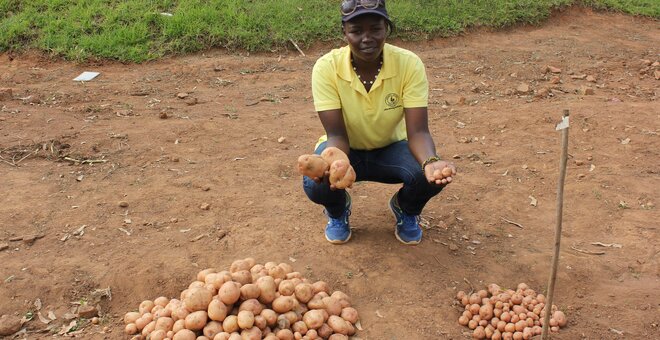Uganda: National Genebank
Location
Entebbe, Uganda
Parent Organization
Plant Genetic Resources Centre (PGRC), National Agricultural Research Organisation (NARO)
Mission
The strategic objectives of the PGRC, of which the National Genebank is part, are to:
- Collect and conserve stocks of diverse plant germplasm
- Enhance utilization of germplasm through characterization, evaluation and genetic enhancement
- Develop information and documentation systems and strengthen linkages among stakeholders
- Promote community-based and on-farm conservation of plant genetic resources as a basis for sustainable natural resource management
- Enhance the role of the Botanic Gardens in national development
- Bioprospect conserved plant genetic diversity in ways that contribute to livelihood needs and national development
- Contribute to the formulation and implementation of policies and legal frameworks for efficient conservation and sustainable use of PGR.
Date Established
2004
Number of Samples Conserved
5,200 (as of September 2023)
Main Crops Conserved
- Cereals — finger millet, maize, pearl, millet, rice, sorghum (representing 20% of the collection)
- Legumes — bambara groundnut, common bean, cowpea, groundnut, pea, pigeonpea, soybean (representing 5% of the collection)
- Vegetables — amaranth, cucurbits, eggplant, okra, pepper
- Oil crops – sesame, sunflower
- Forages – grasses
- Crop wild relatives – rice, finger millet, pearl millet, sorghum, tomato
- Technical plants — cotton
Background
The Uganda National Genebank (UNGB) was established in 2004 as one of the components of the PGRC, the other component being the Entebbe Botanic Gardens. The Centre is part of the Biodiversity and Biotechnology Program under the National Agricultural Research Laboratories (NARL) of NARO. The mandate of the Centre is to ensure the conservation, management and sustainable use of Uganda’s plant genetic resources for food and agriculture (PGRFA) while optimizing their full potential in contributing to national development goals.
The Genebank is located adjacent to the historical Entebbe Botanic Gardens, established in 1898. The Botanic Gardens conserves over 500 plant species, both exotic and indigenous.
The PGRC plays a role in both ex situ and in situ conservation of crop diversity and utilization of germplasm through characterization, evaluation and genetic enhancement. The PGRC has an explicit role in generating knowledge and information that informs policy formulation relating to plant genetic resources. The Centre is the National Focal Point for the International Treaty on PGRFA.
- UNGB has distributed an average of about 250 seed samples a year to requesters in Uganda and abroad (Canada, Italy, Kenya and Tanzania in the past five years).
- The Genebank has established several community seedbanks in different parts of the country to enhance on-farm conservation and use of crop diversity.
- The Genebank has deposited 946 seed samples to the Svalbard Global Seed Vault and 76 crop wild relative seed samples at the Millenium Seed Bank, Kew, UK, for safety duplication.
- The Genebank utilizes the Genesys, FAOWIEWS and GLIS PGRFA information systems for public access of germplasm and information exchange.
The Collection
The Genebank collection is managed according to international standards and focuses only on plants that produce orthodox seeds that can be dried and stored at low temperatures. Just over half of the collection is landraces and crop wild relatives collected in Uganda. The remainder are breeding lines and released varieties. Seed samples, both base collection and active collection, are stored in sealed aluminum foil packets in freezers at −20° C. Non-orthodox species are maintained as live collections in the Entebbe Botanic Gardens.
Part of the collection is also managed by communities through the Community Seedbank Network.
Stories about Uganda
Urgent Action Needed as Farmer Varieties Disappear from Use
A team of genebank specialists recently reviewed national crop genebanks in Uganda and Tanzania as part of the Biodiversity for Opportunities, Livelihoods and Development (BOLD) Project.
7 Feb 2023
Support for National Genebanks Underway
Seeds maintained in genebanks worldwide are the foundation of our future food and nutrition security.
16 Jun 2022
Potato Diversity Leads to Economic Gain in Uganda
The genebank of the International Potato Centre (CIP) holds more than 6000 accessions of potatoes and distributes samples to users all over the world. But CIP often doesn’t hear back from those recipients of diversity.
“It’s...
3 Sep 2020
3 Sep 2020

